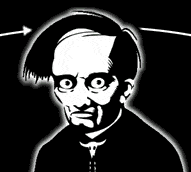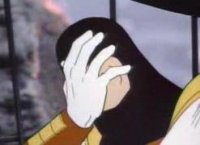While confined to our homes, in a time of crisis, introspection and nostalgia are an understandable, comforting response. So too is escapism. I combined both by re-reading some of the pulp fantasy classics I encountered as a teenage nerd. But teenage me is not adult me, and I was surprised and dismayed by my reactions.
Conan revolted me with its cheap racism. David Eddings tired me with his empty repetition of stock fantasy motifs. Then I tried Elric, a series that bowled me over with its transgressive antihero the first time I read it. And with Elric, at least, there was enough pleasure to last me to the end of the series.
What I found most surprising about the whole journey is that to the modern, adult eye, Elric doesn’t feel that transgressive. Perhaps he did in the early sixties when he was first written. But after decades of grimdark and cyberpunk and Game of Thrones, it feels tame in comparison. Even his much-vaunted status as an antihero feels in doubt. Despite carrying names like Kinslayer and Prince of Ruins, he acts and thinks like a traditional hero much of the time.
Another surprise is that there’s little out there on the internet by way of fan service. There’s no question that Elric has been a huge influence in the development of the fantasy genre. The Witcher owes a huge and obvious debt to the series. So does every talking sword and mention of chaos as a corrupting, antagonistic force. Yet poor Elric himself seems to have been forgotten. Here’s my ranking of his adventures, with mini-reviews, as my own offering to push the pale warrior back into the spotlight.
#8 Bane of the Black Sword
While only the second of the books written, if its the penultimate in the internal chronology of the series. And if read in that order, by this point, Elric’s incessant self-pity is becoming very tiresome. There’s not very much here to offset it. After a good early adventure in the horrible Forest of Troos, the book falls back on tired old tropes. Elrics sets off a quest. Elric hits some trouble. Elric escapes thanks to a sorcerous MacGuffin. It doesn’t help that a central plot driver in this book is the middle-aged Elric falling in love with and marrying a seventeen-year-old girl. There’s transgressive, and there’s plain creepy.
#7 Revenge of the Rose
Written some years after the rest of the books, this reads like a sore thumb. It’s much slower paced than the others, with more elaborate prose and philosophical digressions. At first, this feels like a welcome change but soon it becomes apparent that this style doesn’t suit a series based on violent adventure. Worse, most of it is rather empty rhetoric bound up to a convoluted and confusing plot. What saves Revenge of the Rose is Moorcock’s prodigious imagination. The Gypsy Nation is a stupendous and horrifying concept. Elric’s long discussion with Arioch at the latter’s terrifying machine is a fascinating glimpse into how Moorcock considered the Gods of his world and religion in the real world.
#6 The Fortress of the Pearl
Of all the books in the series, this is the one that’s most like traditional fantasy. It’s a good read, exciting, and full of imaginative concepts. The whole idea of the Dreamthief is fascinating and well realised in Elric’s adventures through the multiple layers of the dream world, each more bizarre than the last. Lord Gho is a great villain whom you learn to really loathe. So why the low ranking? Because it’s not Elric. Books like this are dime a dozen in the fantasy section of any bookstore, just as exciting and readable. Our protagonist has never been more heroic or generic than here, doing good deeds left and right and Stormbringer is relegated to a background presence.
#5 The Weird of the White Wolf
These were the first stories written about Elric, and it shows. What should be the centrepiece of the entire series, and would have been in the hands of a more experienced author, is rushed through in a few dozen pages. The bleakness of this story was extraordinary when it was published, but it’s hard not to look back and think about how much more impactful it could have been if Moorcock had laid more groundwork for his characters before killing them off. The second and third stories are fine fantasy romps, full of energy and imagination, but they don’t coalesce together into a cohesive novel. In particular, the grim tone of the first two is at odds with the relative levity of the third.
#4 Elric of Melnibone
Much as Bane of the Black Sword suffered from being toward the end of the series, this book benefits from being the first. The characters and setting feel wild and fresh, from the decadence of old Melinbone to the scheming and selfish Yyrkoon. It also benefits from being the only book prior to Fortress of the Pearl that feels like a single ongoing narrative from beginning to end. We learn sympathy for Elric, of how he feels trapped by his albinism and his father’s disappointment. We learn hatred of Yyrkoon, a far more impressive and wicked antagonist than Theleb K’aarna will be in later books. And the ending is a clear clarion call that there’s much to resolve over coming instalments.
#3 The Vanishing Tower
There’s a lot to enjoy here, from horrible set pieces like the Noose of Flesh to the excursion into Nadsokor, city of beggars. This is also the book where Elric’s nemesis, Theleb K’aarna feels most like an actual nemesis rather than a bumbling fool. But what I found most enjoyable is what seems to have turned off a lot of other readers: Elric’s descent into teenage moodiness. Sure, it’s so self-indulgent at times as to be approaching parody. But this is what sets Elric apart from other fantasy protagonists: here, he really feels like the antihero he’s supposed to be. Full of self-destructive pity and darkness, a seething ball of unvarnished masculine toxicity. Rather than wrapping that horror in sweet-smelling derring-do as most fantasy does, here it’s on full display and we can see the monster for - and in - ourselves.
#2 Stormbringer
As the climactic book to the series, Stormbringer has a lot to live up to and manages it. Elric is at his gloomiest, yet has overcome self-pity and is steeled to the terrible fate he must endure. The sword as drugs metaphor at it’s clearest and most disturbing. The huge battles that take up much of the second half are handled with the epic scale they deserve and the denouement is chilling. It left such a mark on me the first time around that it’s the only bit of the whole saga I could have quoted before this re-read. What lets the book down is it’s opening third which is so reliant on deus ex machina devices that it would annoy even a credulous teen reader.
#1 Sailor on the Seas of Fate
This is one of the books I remembered least from my original trip through the series, so I wasn’t expecting to enjoy it so much. In fact, that lack of recollection may be partly why it ended up being my favourite. And it’s odd because it’s probably the most fragmented of all the books, the one most clearly written with an eye to serialisation. Yet that works in its favour. Here are three tales of thrilling fantasy adventure, each pulsing with energy and imagination. Smiorgan Baldhead makes a great foil for Elrics’ grim nature and, for the first time, we see events that give Elric good reason to be grim. The single cohesive thread between the tales - nautical adventure - works better as a unifying factor than the hither and thither jaunts of the first two books.
It is interesting how three of my top four are from the period where Moorcock went back to Elric in the seventies. They showcase how he’d grown in skill as an author in the decade since the original three books. The two books from the second time he returned to the character twenty years later are lower because, stylistically, they don’t fit with their earlier cousins. This older, wiser, Moorcock lacked the snarling cynicism and pessimistic outlook necessary to keep Elric as the tragic figure he was at first.
For all the acclaim heaped on the Elric stories, they are, first and foremost, pulp fantasy. Pulp of the highest quality, to be sure, fizzing with creativity and allusion, but pulp nevertheless. And the books seem to work best when they play to that pulp nature, putting excitement and adventure to the fore, and pushing the gloom and faux-philosophising behind. Sailor on the Seas of Fate does that best of all the novels and tops my list as a result.
 Games
Games How to resolve AdBlock issue?
How to resolve AdBlock issue? 










